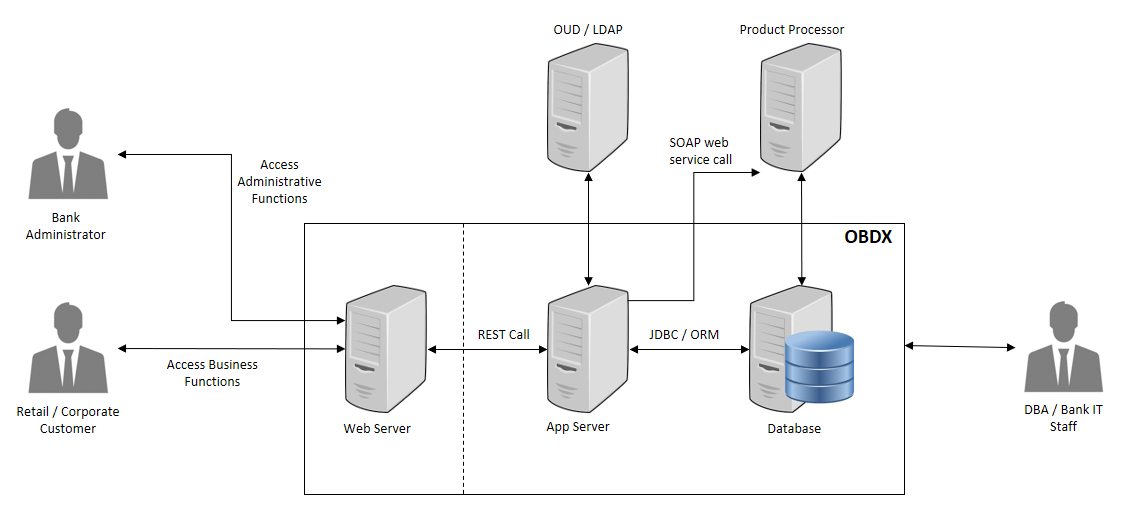3 Flow of PII Data
This section depicts the flow ‘personally identifiable information’ (PII) within the OBAPI system in the form of a data flow diagram.
The Bank Administrator is Bank’s employee who is performing administrative functions using OBAPI. As part of these, he will be dealing with PII data. An example is that the Administrator creates Retail and Corporate users in OBAPI and while creating users he/she enters user information such as first name, last name, email address, mobile number, correspondence address etc.
Retail / Corporate Customer is Bank’s customer who is accessing the online banking features. As part of this he/she will be able to see his/her accounts, balances, beneficiaries, transactions, profile details etc. Note that OBAPI also supports onboarding of new users. The system captures some user information such as first name, last name, email address, mobile number, correspondence address and financial information such as income profile.
DBA / Bank IT Staff is Bank’s employee who is not a user of OBAPI but has access to the database that stores OBAPI bank end data or the server environments on which OBAPI is deployed.
Web server typically contains static web content such as styling information (CSS), Javascript resources, images, static HTMLs etc. Web server passes the REST service calls to Application server.
Application (App) Server is the server on which OBAPI services are deployed. This server performs required processing on the service calls. It does use the database for retrieval or storage of data. It can also connect to external user credential store (such as OUD or Open LDAP). It can also connect to core product processor to enquiring CIF or Account related data or for posting any transactions initiated by the Retail or Corporate customer.
Database is the persistence store for OBAPI. It can contain primary configuration data, user data and transactional data.
OUD / LDAP represents the external user credentials store. OBAPI does not maintain user credentials locally but depends on external specialized software to do that. An example can be Oracle Unified Directory (OUD) or Open LDAP.
Product Processor is the core banking solution which actually processes actual banking transactions. OBAPI connects to the product processor to fetch data such as CIFs or Accounts or transactions. It also connects to the product processor to post new transaction initiated by Retail or Corporate customer.
